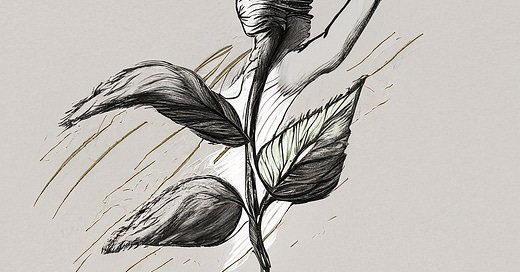Have you ever worried about wind damaging the fragile plants in your garden? It might seem counterintuitive, but gusts of wind are actually beneficial for plants. Every time a plant is slapped by the wind, it releases a hormone called auxin that fortifies its stem.
Surprisingly, plants raised without wind exposure are prone to toppling over or breaking easily. Savvy gardeners know this and occasionally expose their young seedlings to outdoor gusts or even give the pots a shake to toughen them up!
Much like plants, we humans require a certain amount of stress to grow stronger. This concept is known as eustress, or 'positive stress'. It's the exact opposite of the harmful stress or distress, that can damage our health.
Some folks assert they perform better under pressure, seemingly thriving as deadlines draw near. Now, I'm not advocating for procrastination, but what I am saying is a manageable amount of stress can enhance focus and output.
Eustress is essentially a performance booster!
But before you march off to exert pressure on your team or family, let's clarify the subtle differences between good and bad stress. The distinction can be blurred and easily misunderstood.
Good stress typically results in a blend of excitement and motivation; it fuels your drive to tackle challenges head-on.
On the other hand, bad stress often leads to procrastination and a feeling of being overwhelmed. When left unchecked, it can even evolve into anxiety and depression.
Good stress → Excitement → You see problems as challenges to conquer.
Bad stress → Procrastination → Evolves into anxiety and depression.
Is there enough good stress in your life?
So, what's the human equivalent of 'shaking the plant pot'?
These are the fresh, unfamiliar challenges that push us out of our comfort zones.
It could be starting a new job, relocating to a new city or country, embarking on an adventurous trip, embarking on a new fitness regimen, or learning a new skill or language.
Stepping out of your comfort zone to learn new skills or accept challenges strengthens our mental and physical resilience. It's essential to have a dose of good stress in our lives. Eustress can be either physical or psychological.
If you or your children are lacking eustress, now might be a good time to introduce some.
But here's the million-dollar question — Is it possible to transform bad stress into good stress?
Can you transform bad stress into good stress?
While not all types of stress can be converted, some certainly can.
Same stressors can have radically different impacts on different people. I recently watched a show where a 10-year-old witnessed his mother's murder and grew up to be a kind-hearted superhero committed to helping others.
In contrast, the show's villain also saw his mother being killed, but he evolved into a vengeful antagonist with no qualms about harming others.
So, how do we become heroes and not villains?
Many successful people have similar narratives: they've faced adversity, they've been stuck, and from there, they've risen like a phoenix from the ashes, never looking back.
So here are a few tips:
Treat stress as an opportunity to unveil the hero within you.
Vent your frustrations to someone or write them down — it can help clear your mind.
Engage in physical activities like a long walk or run to boost mental clarity.
Accept what you cannot control and focus on what you can.
Amp up the positive aspects of what you can control. What's the next best action?
Life isn't all sunshine and rainbows 🌈 ☀️. We're occasionally thrown into valleys of darkness. It's up to us to view these challenging times as opportunities to reveal our inner hero.
“What doesn’t kill you, makes you stronger.”
— Friedrich Nietzsche
Translation from the 19th-century German philosopher.





